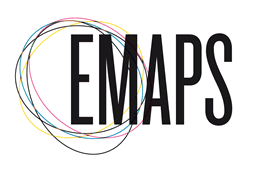A collaborative European research project has launched a website with stories and maps relating to climate change adaptation issues.
The website, titled ‘Climaps: A Global Issue Atlas of Climate Change Adaptation,' was developed as part of the three-year ‘Electronic Maps to Assist Public Science (EMAPS)' project, which received funding from the European Commission's Seventh Framework Programme for Research (FP7) ‘Science in Society' programme, and used the ‘controversy mapping' method to illustrate the main actors and controversies around major scientific debates.
 16 October 2014: A collaborative European research project has launched a website with stories and maps relating to climate change adaptation issues. The website, titled ‘Climaps: A Global Issue Atlas of Climate Change Adaptation,’ was developed as part of the three-year ‘Electronic Maps to Assist Public Science (EMAPS)’ project, which received funding from the European Commission’s Seventh Framework Programme for Research (FP7) ‘Science in Society’ programme, and used the ‘controversy mapping’ method to illustrate the main actors and controversies around major scientific debates.
16 October 2014: A collaborative European research project has launched a website with stories and maps relating to climate change adaptation issues. The website, titled ‘Climaps: A Global Issue Atlas of Climate Change Adaptation,’ was developed as part of the three-year ‘Electronic Maps to Assist Public Science (EMAPS)’ project, which received funding from the European Commission’s Seventh Framework Programme for Research (FP7) ‘Science in Society’ programme, and used the ‘controversy mapping’ method to illustrate the main actors and controversies around major scientific debates.
The EMAPS project sought to use computation and data visualization to harness the availability of digital data, and mobilize it for enabling different stakeholders’ participation in contemporary techno-scientific debates. The Climaps portal presents the results of the project, including ‘issue stories’ and ‘issue maps.’
The issue stories include: a case study on tracking destinations of adaptation funding in Bangladesh; an analysis of discussions under the UN Framework Convention on Climate Change (UNFCCC) based on the IISD RS’s Earth Negotiations Bulletins; and a comparative examination of donor countries’ approaches to official development assistance (ODA) for adaptation.
The issue maps present illustrations of issues, such as: the rise of adaptation funding; agendas of international climate change non-governmental organizations (NGOs); bilateral adaptation funding and vulnerability indices; and the absolute and relative visibility of issues and countries in the UNFCCC negotiations from 1995-2003.
Project partners are: Fondation Nationale des Sciences Politiques (Sciences Po), France; University of Amsterdam, the Netherlands; University of Dortmund, Germany; Barcelona Media, Spain; Polytechnic University of Milan, Italy; and the Young Foundation, UK. [Climaps Website] [EMAPS Project Website] [IIDS RS Earth Negotiations Bulletins from Climate Meetings]